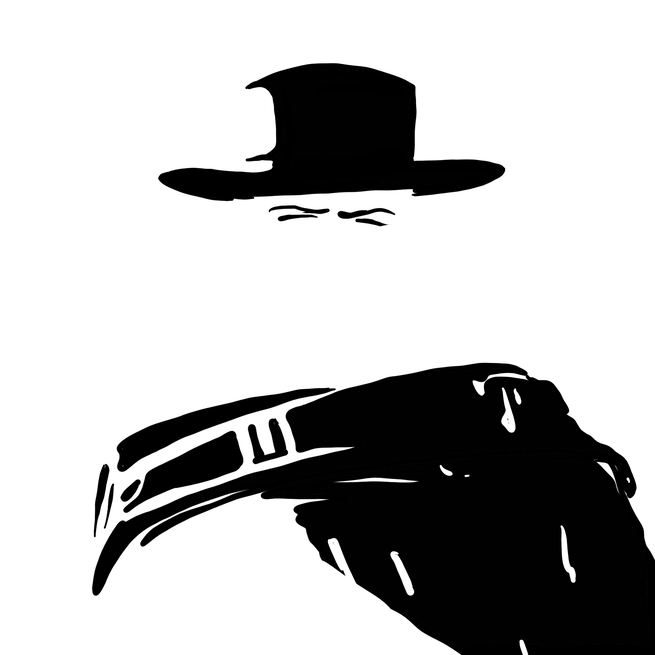
There’s an argument I keep having in my head.
Lately, my daughter has been struggling with understanding the behavior of others at school. She’ll say this kid or that kid is “good” or “bad.” I immediately leap in with this: there are no “bad people,” only “bad decisions.”
People should be held accountable for their “bad decisions,” but their “bad decisions” Do Not Make Them Bad People.
I tell her this because I want her to know that mistakes are fine. Learn from them and try to do better next time. You might fuck up 15 times. Or 150 times. But you’re growing and learning and becoming better at the choices you make, and not one of those 150 fuck ups suddenly mean you’re a “bad person.”
And this inevitably leads to my proclamation that everyone is “fundamentally good.”
But then if an adult hears me say this, they asks me something like, “well what about Hitler?” (And I have Jewish family members so this type of question is particularly sensitive.) First, I probably can’t take the “easy” answer of insanity,since in-depth reviews of his mental health have come out on the side of sane, while others have concluded that he was mentally ill. If he was insane, that’s my easy out. But if he was sane, I can’t fall back on “but he was crazy.”
And then there’s my less existentially-focused answer is easily “of course Hitler was a bad person.” There comes a point where someone makes so many horrifying decisions that I don’t even care about the technicalities anymore – Hitler was a shit. But then it’s not long before the existential voice in my head pipes back up to say, “nope, you can’t slide into that, that’s the easy way out and people aren’t ‘bad’.”
And if we fast forward three-quarters of a century, and I find myself asking similar questions about the current political climate. And then it all just starts falling apart – what about terrorists. What about rapists. What about murderers.
And then I remember something that seems to be so easy for me to forget.
Not only are there no bad people, there are also no good people. There are no bad choices. There are no good choices. There are simply choices and their consequences.
Societies construct rules around choices. Most societies tend to favor rules that stop that society from destroying itself, of course. And then things quickly diverge from society to society. Even within the same society, “good” and “bad” vary wildly. This is obvious in some arenas (say, politics) and less obvious in others. But for every single action to which you can assign “good” and “bad,” someone else out there can assign “bad” and “good.” Her clothes are good/bad. His decision to leave his wife was good/bad. Trump’s policies are horrifying/just what America needs. Then of course, there’s the choices we’ve officially agreed on as law. But even those get broken, or overturned, or ignored.
I know all this to be true. And, I’ve known all this to be true for a while. I’m a firm believer in the idea that we construct our own good and bad. That how we perceive the world around us actually dictates our experience of it and that we can shape our reality by how we think about it.
What I hadn’t noticed was that I had taken my belief that there are no bad people, and allowed it to generate a false equivalency that “people are good.”
And I did that for my daughter.
I want her to believe in the good in people. Because when you believe you see good around you, you’re happier. You want more of it. You seek out more of it. Your life is better when you look for the good. That’s what I want for her.
But what is “good” and what is “bad” is up to her, if she chooses to see “good” and “bad” at all.
This is a lesson that (apparently) I have to learn over and over again. That things just “are.”
Accepting that is freeing. And completely terrifying. When you realize how much freedom you have to choose your own path — including determining what is good and bad — it goes against everything we’ve ever been taught by our parents, our schools, our friends, the media. It can be liberating and horrifying in the same moment. And it can incur a tremendous amount of scrutiny, because when people who haven’t made this leap see their loved ones take the jump, they’re expecting them to fall from a cliff rather than land safely on the other side of the chasm. “You can’t do that! What would your mother say?! What will people think?” But once you make that leap, it’s that much easier to see “good” and “bad” concerns from others as just what they are – other people’s judgements. Not yours.
You certainly still have to deal with the consequences of your decisions. You will (probably) get arrested if you are caught committing a crime. You might anger a friend or lose a friendship if you betray their trust. If you quit your job, you will not receive that paycheck anymore. “If this then that” is a real-life consideration for everything, not just a great website for automating your life.
But often, we assign “good” and “bad” to our choices. And more often than not, the “good” and “bad” that we assign belongs to someone else. I pummel my daughter with positive and negative reinforcement for things I want to encourage/discourage — hopefully only with regard to her safety, but sometimes it’s just “dear lord, please let her get ready faster and let me get to work on time just once this week.” At school we expect kids to behave a certain way to “fit in,” and so certain things are defined as “good” and “bad.” Then we do it again as adults, and again in the workplace, and again in society.
But it’s actually up to you if you want to keep all of your definitions of “good” and “bad.” That won’t make you inherently “more good” or “more bad.” But it might make you more you.
What will you choose to do today? Who will you choose to be?

By the way, if anyone knows how to explain that there is no “good” or “bad” to a child, and only “choices and consequences,” while still getting them to brush their teeth and sit nicely in class, let me know. I’m about half way there … but we parents need all the help we can get.
